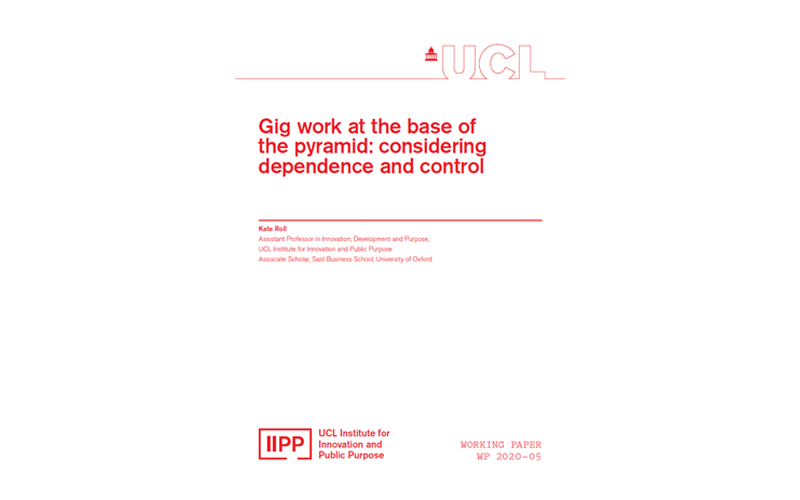Gig work at the base of the pyramid: considering dependence and control

6 July 2020
UCL Institute for Innovation and Public Purpose (IIPP) Working Paper Series: IIPP WP 2020-05
Author
- Kate Roll | Head of Teaching and Assistant Professor in Innovation, Development and Value, UCL Institute for Innovation and Public Purpose
Reference
Roll, K. (2020). Gig work at the base of the pyramid: considering dependence and control. UCL Institute for Innovation and Public Purpose, Working Paper Series (IIPP WP 2020-05). Available at: https://www.ucl.ac.uk/bartlett/public-purpose/wp2020-05
Abstract
Firms engaged in ‘base of the pyramid (BoP) development’ programmes celebrate the benefits for ‘micro-entrepreneurs,’ who work at the edge of the firm performing last-mile distribution in hard to reach areas. However, the language of ‘micro-entrepreneurship’ obscures the actual employment relationship and the distribution of risk and rewards between the worker and the firm. I argue that a framework drawn from labour law, which is rooted in norms of exchange and non-exploitation, can help us analyse these relationships and thus locate the firm’s responsibilities to these workers. Of particular importance are the ideas of dependence and control. This framework is applied to the case of a route-to-market programme in Kenya. The paper concludes that we see aspects of dependence and control in these relationships, and thus we can consider these workers to be similar to ‘dependent contractors’—a category that has increasingly been explored in relation to gig work. This also opens broader questions about the obligations of firms to BoP workers who may be, almost definitionally, dependent upon this work.
 Close
Close

